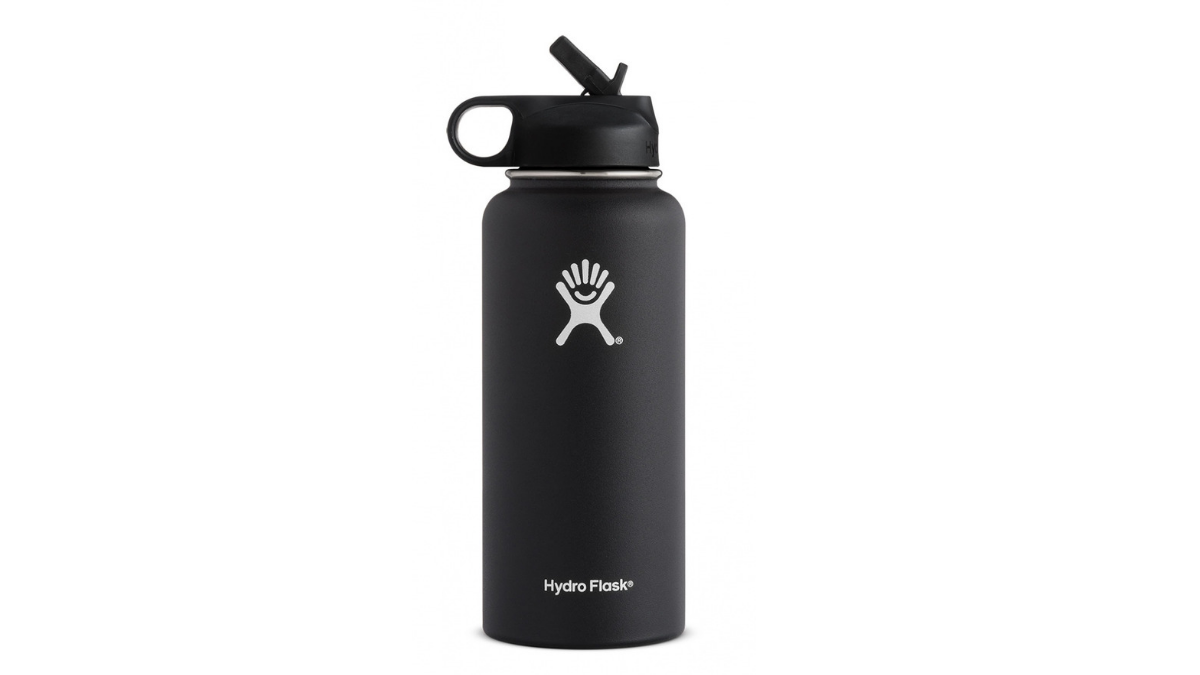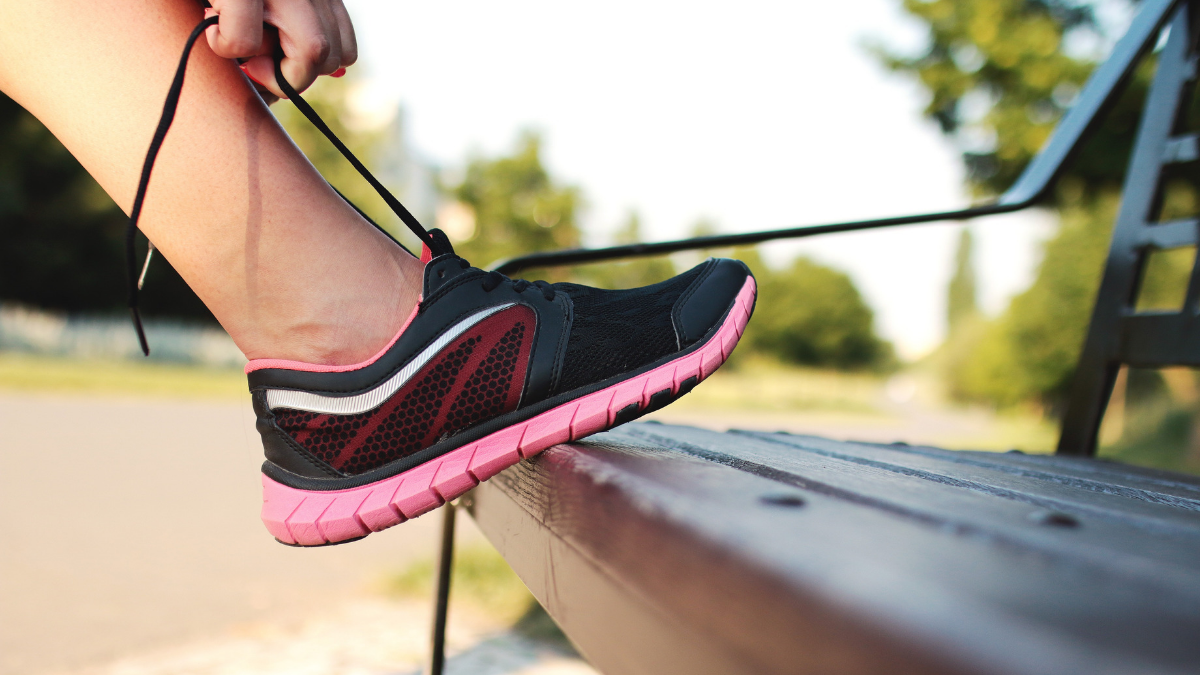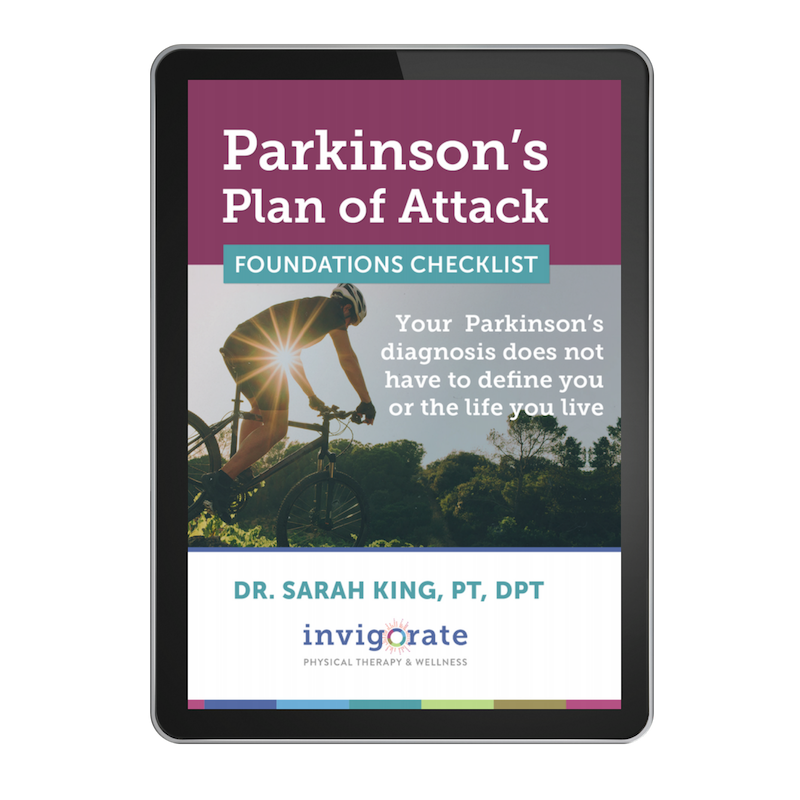"You need to drink MORE WATER!"
You’ve heard it a million times.
Every health practitioner worth their salt has recited these words hundreds if not thousands of times to their clients.
However, there is more to staying properly hydrated than just chugging 8 glasses of water every day and the implications can be life changing.
Download our Parkinson’s Plan of Attack Checklist to learn which foods to add (and which to avoid) when you’ve been diagnosed with Parkinson’s.
Imagine the potted plant in your home that sits in the corner.
Similar to a water-starved plant, your cells can become chronically dehydrated. Re-hydration has to be strategic.
If it hasn’t been watered in a while the soil gets dry and crumbly.
When you add water at this point the soil isn’t able to absorb a majority of it and it slips through the cracks and out the bottom of the pot.
No matter how much water you pour over that poor guy he’s not going to re-hydrate properly!
This is similar to what happens to your cells when you have been chronically dehydrated: Our cells are less able to properly absorb the water we put into our system. This excess of water in our digestive tract leaves us feeling water-logged and making frequent trips to the bathroom.
Similar to the wilted plant, our body can’t perform its daily functions without proper hydration to your cells.
Proper cell hydration is fundamental for your health.
Without it:
You can’t get proper nutrients into your cells (here come achy joints and painful muscles)
Your mitochondria (which are the energy-producing “powerhouse” of each cell) can’t produce the energy you need to heal and function
You can’t make digestive enzymes or hormones (hello constipation, nutritional deficiencies, and anxiety)
You can’t repair your DNA (fast track to looking and feeling older than you are!)
Your neurons are less efficient at sending electrical signals to each other (brain fog, anyone?)
You can’t flush out nasty toxins that contribute to disease and disarray.
As you can imagine, regaining the ability to properly hydrate can have a drastic impact on how you move, think, and feel on a day-to-day basis.
Try implementing these 5 simple strategies to rehydrate and give your energy a boost.
#1. Balance Your Sodium
Adding 1/4 tsp of Celtic or Himalayan sea salt to a quart (32 oz) of water helps assist your kidneys at properly absorbing water from your bloodstream.
Specifically using Celtic or Himalayan sea salt offers 60+ trace minerals and electrolytes that assist your cells in absorbing the water molecules and using them to your advantage.
We like coarse ground Selina Naturally Celtic Sea Salt.
(Afraid of overdosing on sodium? 8 ounces of this cocktail contains 115mg of sodium compared to 8 ounces of Pedialyte that contains 260mg.)
#2. Use a Water Filter
While a vast majority of the nation’s drinking water gets a passing grade from federal and state regulatory agencies, there are still 250-plus contaminants detected that have been shown to pose health risks.
According to the Environmental Working Group, there are no legal limits for “more than 160 unregulated contaminants detected in the nation’s tap water”. These industrial and agricultural toxins have been linked to cancer, brain and nervous system damage, hormone disruption, and more.
Needless to say, you don’t want those toxins anywhere close to your precious brain. Remove toxins and chemicals from your tap water with a home filtration system or, at minimum, a stick of activated charcoal.
#3. Hydrate in the Morning
Start your day with a glass of water as this is the time of day where your body is housing its highest concentration of toxins and is most dehydrated.
(Add a squeeze of lemon if you're feeling fancy and want to give your digestion a boost.)
#4. Avoid Coffee, Tea, Soda and Alcohol... in Excess
These can have a diuretic and dehydrating effect.
Try to stick with one cup of coffee or tea in the morning (after your class of water, of course).
Soda has no place in a healthy diet as it is full of toxic chemicals and inflammation producing sugars but if you are going to indulge do it very infrequently. For a more beneficial carbonated beverage, try LiveSoda.
Alcohol should also be consumed in moderation and supplemented with a glass of water per drink.
#5. Pick the Right Water Bottle
Avoid plastic water bottles whenever possible (even if it says it is BPA-free) as chemicals released from these bottles can also contribute to your daily toxin load. Choosing stainless steel or glass bottles are best. Throw in a stick of activated charcoal and you’re good to go!
The Hydro Flask (seen above) is stainless steel and ultra insulated so it keeps water colder, longer. It also has a slip-free grip and comes with a variety of lid options so you can tailor it to your specific needs (ie. straw vs. open mouth).
You can find it on Amazon or most sporting goods stores like REI.








